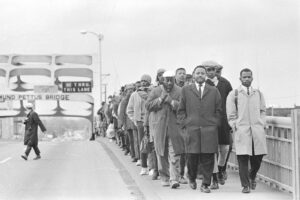This week we were reminded how quickly life can change at a moment’s notice. It’s been a while since we have had any sort of “medical emergency,” and it was a sudden and unpleasant break in our routine. “Cancer life” this year has felt remarkably uneventful—“just” scheduled scans and treatment—and we are so grateful! We go to the doctor once every three weeks, and have rarely needed appointments in between. This year has been a chance to catch our breath, and focus on other areas of our lives that were placed on the backburner when appointments and medical emergencies were more prevalent and less predictable.
A few nights ago, I left a happy, healthy Tommy at home to go to a yoga class. Only an hour later, I came home to a husband who was doubled over in inexplicable pain. He started having pains in his abdomen while I was in class, and by the time I got home, it was clear something was wrong. How could this have happened so quickly? We called the 24-hour hotline for our hospital, and they recommended he come to the ER.
We were not looking forward to this, as anyone who has been to the ER in Manhattan, late at night, can understand. The television depictions of New York City ERs barely do them justice. Just picture your personal definition of pure disorganized chaos, and you’re almost there. We went back and forth trying to decide if this was something that could pass on its own, or if it needed medical attention, but ultimately it was clear that the smart move would be to get it checked out immediately.
By the time we got to the hospital, I was so thankful we decided to go. His pain had increased, and we had absolutely no idea what was causing it. This sort of thing had never happened to Tommy before, and he has yet to have any sort of side effects from his treatment that remotely resemble this abdominal pain. After many hours in the ER, we finally found out that he was experiencing a gastric blockage: Scar tissue buildup from a previous surgery caused a twist in his intestines, creating a painful and potentially dangerous block. It’s a fairly common condition, but it can also become quite serious if left unattended.
In a (cancer) world where it feels like we have so little control, I like to try to focus on the things we have agency over.
Tommy was admitted to the hospital after eight hours in the ER, and we found ourselves there for five days. It sounds weird to say—because five days in the hospital isn’t exactly ideal—but we were lucky; his blockage is going away on its own, and thankfully, doesn’t require surgery. Because our “cancer brains” were running on overdrive, we were terrified that some new metastasis might have formed the block, or a side effect from treatment caused it, and we’d have to seek another option. Learning that it was “just” a blockage, and is common, was a massive relief. It’s funny how you find yourself wishing for things like, “Please let it be a crazy intestinal block!” I mean, who wishes for that? Cancer survivors do, because they know how serious other options can be.
It’s been a long, exhausting, scary weekend, and I still can’t believe how quickly things went from Hallmark-movie-on-the-couch to hospital-bed. These scary moments remind me that even though we don’t have control over everything that happens, we have control over how we react. In 2017, we were surprised by a cancer diagnosis, but we chose how we wanted to fight it. We were surprised by recurrence a year later, but again, we chose how to react and take action. We were surprised by this fluke emergency this week, but we chose to stay calm, head to the hospital, and do what it took to get back to healthy.
In a (cancer) world where it feels like we have so little control, I like to try to focus on the things we have agency over. We can focus on mindset, nutrition, exercise, how much or how little we want to open up to friends and family, how much support we let in. We can gather as much information as possible to be empowered and knowledgeable, we can utilize resources, taking advantage of second opinions to make educated treatment decisions—the list really goes on and on. Even this week, we focused on Tommy’s rest. He could have worked from his bed, but we tried to be as unplugged as possible. We were in control of advocating for ourselves. It can feel easy to be lost and forgotten in a busy hospital, but continuing to ask for what you need, and keeping your medical team informed, is important. We were in control of the support we asked for—I asked my sister to tag-in to the ER, so that I could get dinner and stay energized to support Tommy. A very “out of control” situation, felt surprisingly “in control.”
This is not at all how we would have handled a situation like this two years ago. Over time, we’ve definitely been conditioned to understand how hospitals work, and the best way to exist in medical emergencies, but I’m still really proud of how we handled ourselves. Two years ago, I would never have asked to take a moment for myself, because I would have felt guilty. We didn’t fight the course of treatment, even though it caused some scheduling issues on our end. We knew that it was worth the extra rest and care to push off our to-do list and work for a few days.
If you are new to the cancer world, or have just recently been exposed to an unexpected medical emergency as a caregiver or patient, here are my tips:
- Never be afraid to advocate for yourself to keep your medical team on track, but know that ultimately, they are trying to do everything they can, or think is best for you.
- Let support in. If someone offers to bring you food or stay at the hospital so you can rest or shower, take them up on it. A more rested caregiver is a more effective caregiver.
- If you’re going to be in the hospital for a while, bring noise cancelling headphones, a sleep mask, and lip balm.
- And most of all, remember that even in the middle of the storm, when you feel powerless, there is so much in your control, and even if you can’t see the end yet, this will pass.







